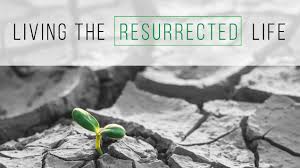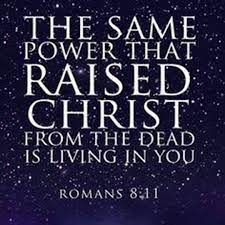The Pursuit of Peace
With all the chaos in the world, contention in our country, and personal stress in our life, it is no surprise that one of the things people want most but can’t seem to find is peace. Whether we’re talking about world peace, peaceful relationships, or peace-of-mind, there just never seems to be enough peace.
What is peace? A biblical counselor asked their patients to work through an exercise which has them lists the qualities and characteristics of peace. The results with both Christian and non-Christians are to help people understand that, many times, the peace they seek is “situational, temporary, and experiential”.
It (peace) is seen as the absence of conflict or the removal of hinderance to personal happiness. “When I’m not fighting, when I’m appreciated, when I’m happy, when I’m financially secure.”[1]
What does OUR list look like? Take a minute and write down what you think peace looks like.
Do we want peace?
Silly question! Who doesn’t want peace? Well, of course, Satan doesn’t want it. Whether it’s peace in the world or peace of mind, Satan loves confusion, conflict, and division. So do Satan’s followers: “principalities, powers, and rulers of darkness of this world” and “spiritual wickedness in high places”, i.e., political, commercial, social, religious (Eph.6:12). Before we answer the question of do we want peace, let’s agree on what it is.
What is peace?
A general definition of peace is a stress-free state of security and calmness that comes when there is no fighting or war, everything co-existing in perfect harmony and freedom.[2] Is peace a feeling?
Webster adds to this definition by highlighting the “freedom” aspect of peace: “freedom from disturbance, from war, from civil disorder, and even freedom from disputes and dissension between people.” Is peace based on our circumstances?
I am enjoying this study on peace. From a biblical perspective, it gives me an opportunity to closely examine the words that were “carefully” chosen by the Holy Spirit to best represent God’s intended meaning of peace. It becomes a point of spiritual clarity for me. Whether it is Greek or Hebrew, the word meaning adds to the “precision” I need to know what peace really looks like.
Peace by any other name!
The biblical concept of peace is larger than what we might read in our modern dictionaries. It rests heavily on the Hebrew word root (slm) which means “to be complete” or “to be sound”. The verb peace conveys the meaning—”to be complete or whole” or “to live well”. It is from this root that we get the more familiar word, salom or shalom.
In the Old Testament, this fine distinction of peace can be grouped into four general categories of shalom:
- Wholeness of life or body, i.e., health. (Ps. 34:18; 147:3; Jer. 33:6)
- Right relationship or harmony between two parties or people, often established by a covenant. (Numbers 25:12-13; Ezek. 34:25-26)
- Prosperity, success, or fulfillment (Lev. 26:3-9)
- Victory over one’s enemies or absence of war (Isa. 9:6-7)
The New Testament word for peace, eirene, has been greatly influenced by the Hebrew use of shalom. It occurs in each book of the New Testament. Eirene originally referred to the orderly, prosperous life that is possible if there is no war. Only much later did philosophers begin to apply the concept to an inner, personal peace.
In many ways, the two renderings of peace overlap, especially regarding relationships and harmony between people and nations. It describes:
- Harmonious relationships (Luke 14:32)
- Freedom from harassment (rest from war) (Luke 11:21; Acts 9:31)
- Order, rest, and contentment (Matt.10:13, John 14:27)
- Harmonized relationship between God and man (Acts 10:36; Rom. 5:1; Eph. 2:14-17)
Shalom is still used in both greetings and farewells. It is meant to act as a blessing to the one to whom it is spoken.
Where is my peace?
In answer to my earlier question, “do we want peace?” Of course, we do! So, if we all want peace, why don’t we have it and why is it so elusive? As stated earlier, many times the peace we seek is situational, temporary, and experiential. If we base our peace on the things of “this world, our peace is tied to an unstable, ever-changing world (1 John 2: 15-17).
Unfortunately, we often allow this type of peace to dictate our feelings and our emotions. We may feel safe, secure, and calm; that is until there is a change in circumstances.
Peace may appear to elude us because we don’t know what REAL PEACE looks like. That is the purpose of this series to better understand what real peace looks like. Once we have a clear understanding of what it looks like and its true source, we will find shalom as we navigate the tumultuous waters of 21st century living.
May your life be filled with health, prosperity, and victory.
May it be filled with God’s shalom.
[1] The Pursuit of Peace, Samuel Stephens, Association of Certified Biblical Counselors, April, 2020
[2] Vocabulary.com









